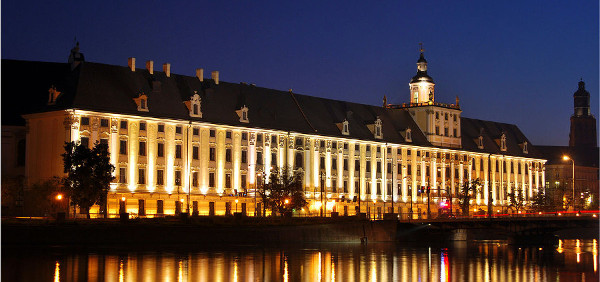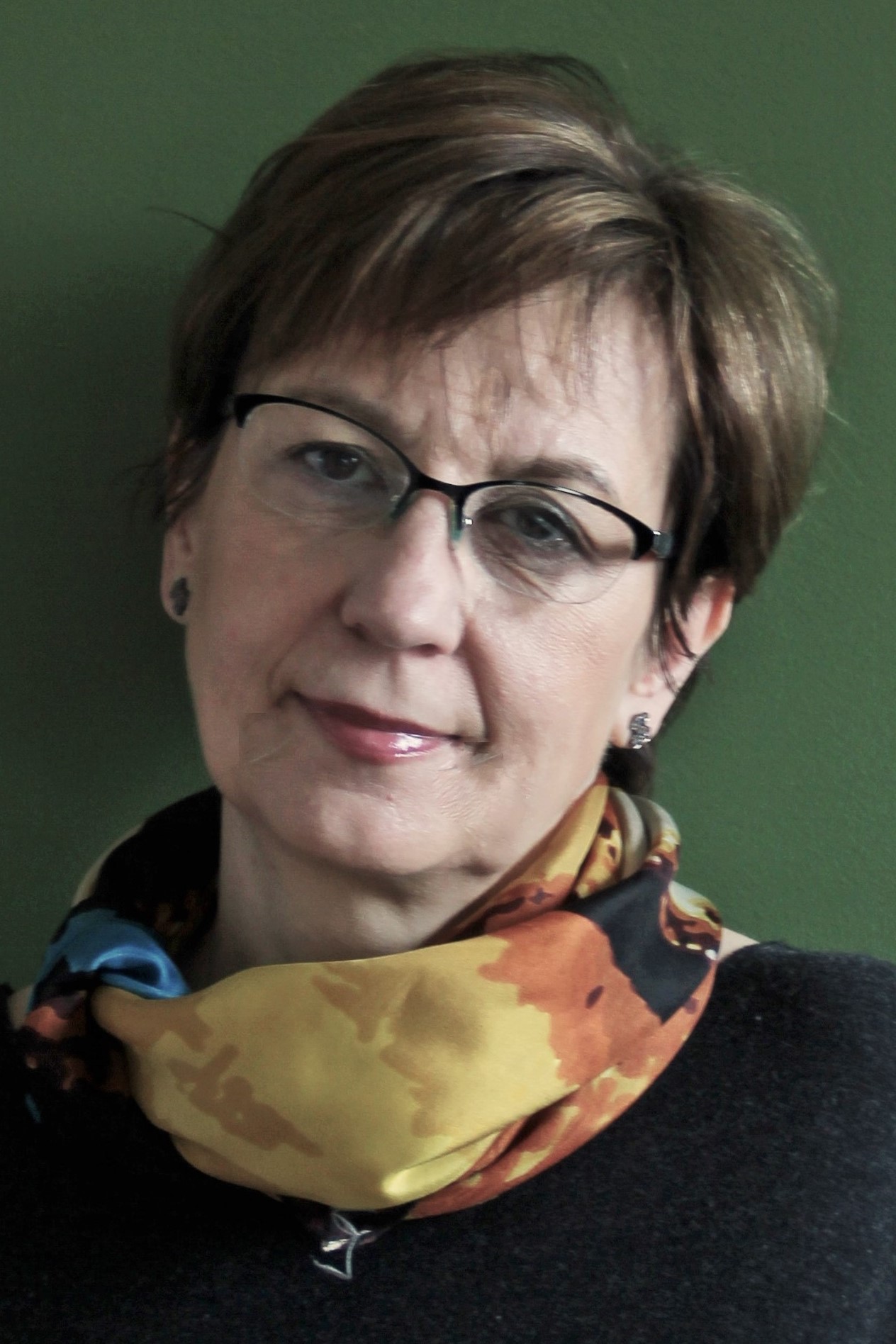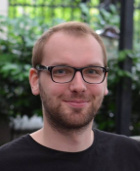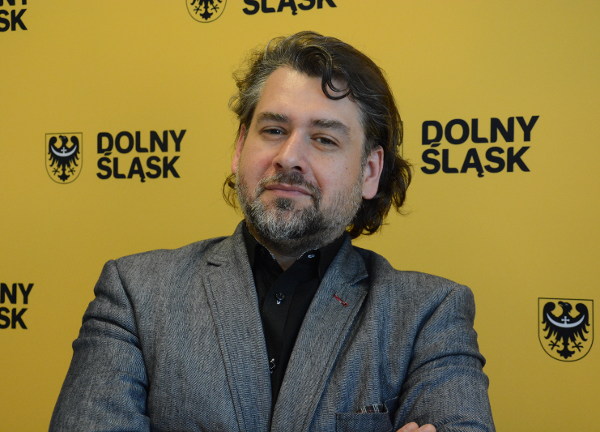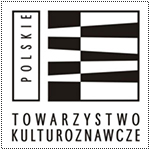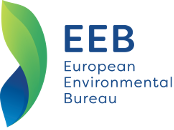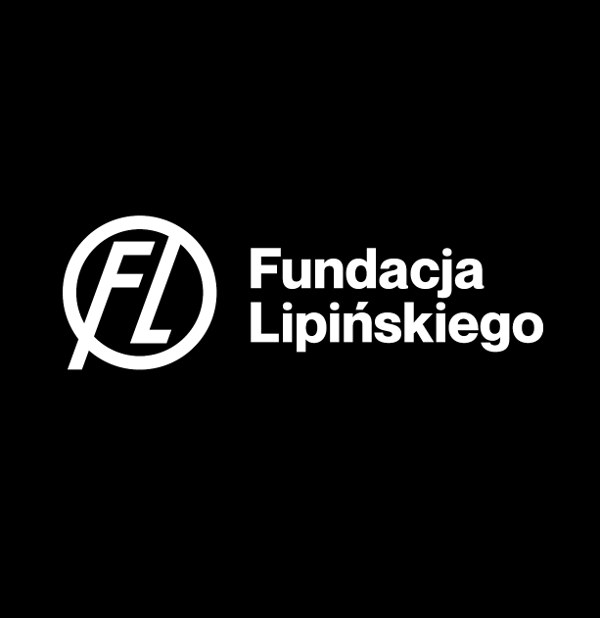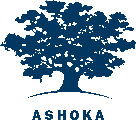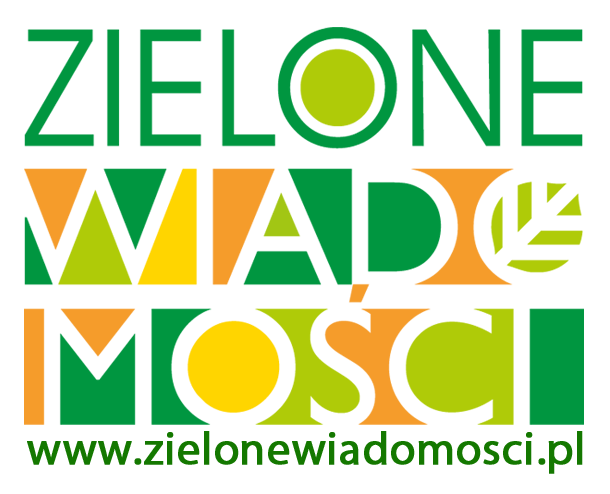Between Growth and Catastrophe
Operationalisation and Design Solution
Online conference — June 9-11, 2021 — Online conference
This online conference is an international event with a focus on finding ways to transition to a de-growth model in culture and economy.
We have become used to rapid changes in culture, economy, society and politics. By affecting the everyday decisions of residents, politicians and business people, these changes in turn transform their underlying value structures. We are constantly facing the fact that spontaneous changes that we identify as development, or even progress, are accompanied by crises and disasters. Some of these problems emerged as early as the 16th century, so they are at least as old as capitalism conceived as a cultural and economic formation. The crises we are concerned with were mostly identified in the 1960s. We have watched them spread and deepen for decades.
- Climate change, extinctions and the contamination of ecosystems with plastic are global and cumulative.
- The global concentration of capital, the middle-class crisis and the growth of the precariat are accompanied by the weakening of the state’s role as a market regulator.
- Once marginalized, xenophobia and racism are now becoming tools used to gain and maintain control, which are efficiently managed by populist politicians.
- The privatization of public and community resources deprives local communities of the basis for empowering their subjectivity and agency, and is very difficult to reverse.
Many excellent projects have been created that contest the dominant processes. Legal regulations were introduced to compensate for the unwanted effects of development. Improving the (capitalist) system, however, does not bring the expected results. That is why many analysts and thinkers use the term de-growth to emphasize the need for radical macro- and microsolutions to reverse the direction of change.
Issues
1. Degrowth and Green New Deal
With more and more studies revealing the implausibility of “green growth”, degrowth postulates have been entering wider public debate. Degrowth points to the necessity of a planned and just reduction of matter and energy throughput to such levels that, on the one hand, stay within planetary boundaries and, on the other, enable a “good life” for everyone. But it is still rare to find this problem recognized in public policies. Various types of Green New Deals (GNDs) – e.g. the European Green Deal – fail not only to mention the necessity of controlled throughput reduction but even to reduce current growth rates. At the same time, the majority of degrowth implementations are still local or niche-based, and consequently without much influence on global economic processes that GNDs will definitely have.
Therefore, in this session we would like to try and answer the following questions: how can degrowth and postgrowth postulates enter local, national or European transformation-related policies (such as GNDs)? What concepts or theories can help us explain how these postulates can be promoted and implemented? Are degrowth implementations doomed to occupy niches only, as some skeptics claim? And, given the current lack of political support for degrowth, is possible to advance its postulates in other ways that could pave the way for their wider adoption in the future?
2. Postgrowth and heterodox economics
Various aspects of postgrowth and degrowth have been studied in recent decades within the field of heterodox economics. These are, among others, giving up on GDP as a growth indicator but also a driving force behind growth, revealing inequalities embedded in contemporary economies, positive and negative externalities, privatization of profits and public or common goods, marginalization and devaluation of non-paid work, generating consumers’ demand by market-based innovations, feedbacks between cultural and market valuation, experience economy, commons-based economy or the complexity and pluralism of economic and cultural analyses. These are some exemplary topics from heterodox economics that could help in operationalizing or designing postgrowth postulates. At the same time, heterodox economies could find inspiration and additional motivation in the warning about possible collapse provided by various postgrowth strands.
How can, therefore, the work of heterodox economists help in developing postgrowth economies and concepts? And how can they verify the postulates of degrowth and postgrowth? What are the barriers faced by the operationalizations of heterodox economies and postgrowth concepts? To what extent does the operationalization and design of solutions help in strengthening various concepts gathered under the umbrella of ‘postgrowth’?
3. Other aspects of degrowth
Degrowth is a scientific concept, a social movement and a political slogan. It is a broad and multi-faceted vision of transformation that goes beyond the ‘ecological’ aspect into a deeper reflection about what ‘development’ or ‘prosperity’ means. Development conceived as further expansion, domination and growth not only transgresses planetary boundaries but also undermines our individual and communal well-being. Therefore, degrowth points to alternative understandings of development: well-being, resilience, health, high quality of life, vibrant relationships, time for the loved ones (and for oneself to develop one’s passions), satisfaction from being embedded in healthy and vibrant Nature, respect for other forms of life, social justice or mutual care. Hence, we invite you to submit proposals that would reflect on degrowth in its variety by adopting social, cultural, environmental, economic, political, historical – or multiple – perspectives. This will help in structuring and enriching the debate about the “good life” in the growth-free future, which is so much needed today.
Topics related to cities are rarely discussed in postgrowth and degrowth literature and usually have anti-urban connotations. At the same time they should not be omitted in any discussion on socio-economic transformations. Cities are home for the most (and still increasing) part of the world population, they are places of production, consumption, and growth. New ideas are appearing in cities, including those on degrowth, and key decisions are being taken. For that reason we dedicate the whole conference block to cities. The key question in this context is how to implement degrowth in cities? What actions should be taken and what instruments should be used to make what now appears to be a utopia, and what is thus being automatically rejected by many, an attractive vision and after all a reality?
We strongly encourage to participate in the conference also persons who have not dealt with the topics of post- and degrowth so far, but whose considerations fit into the theme of prosperity without growth.
During the “Urban transformations” block we propose to discuss the following issues:
Transfer and creation of knowledge on transformation for reducing the ecological footprint. Are local governments interested and competent in using the knowledge on necessary pro-climate transformation? To what extend are they capable of recognizing and sustainable using of local social and cultural resources?
Strategic and spatial planning as instruments for transformation. Local governments have core competences regarding local development planning in its every dimension, as well as ways of area management along with its ecosystems. To what extent their causative potential is and can be used to support the postgrowth, pro-climate, and pro-environmental transformation? What role can be played by strategic and spatial planning in the promotion of degrowth models of local development? Can we imagine spatial management the aim of which would not be stimulation of economic growth?
Creation of friendly conditions for grassroots activities for transformation. Do the decisions concerning public and common spaces favour the bottom-up actions? When can they cause exclusions and gentrification? Are local governments able to utilize the grassroots activity as a resource?
Local public services and practices of commoning. What is the importance of public goods and services, such as public transport, municipal housing or urban land, for degrowth and pro-climate transformation? What is and what could be the role of the commons in these processes, along with the practices of sharing and commoning?
Visions, utopias, operationalizations. Can we imagine urban life in accordance with the degrowth postulates? If yes, then how such life could look like? How to operationalize “urban degrowth”, what theories and practices would facilitate this process?
1. Disaster and commercial marketing
A substantial share of post-growth concepts envisage lifestyle and consumption changes, co-operation, as well as producer and consumer responsibility. These changes cannot be implemented without a transformation of commercial marketing which shapes product design and brand image and without linking it to consumer preferences and the ways product demand is generated, including a complete elimination of the impact of commercial marketing on the circulation of products and services.
How to gauge marketing’s environmental footprint? Can reducing this footprint be profit-neutral for businesses? How do we assess cases of creating product value through building a green image? Is a pro-climate critique of marketing campaigns possible? In what situations and under what conditions should marketing campaigns be regulated for environmental reasons? How imperfect are packaging regulations?
2. Katastrofa i marketing społeczny
Z drugiej strony proklimatyczny marketing społeczny pozostaje zdecydowanie mniej skuteczny i to nie tylko z powodu nieporównywalnie mniejszych środków finansowymych niż w przypadku jego komercyjnego odpowiednika. W jaki sposób można zwiększyć skuteczność społecznego marketingu proklimatycznego? Do jakich emocji, wartości, postaw powinien się odnosić? Jakie wartości, postawy i praktyki powinien promować? Jakie kulturowe i psychologiczne mechanizmy wykorzystują społeczne kampanie proklimatyczne? Jak możemy mierzyć ich skuteczność? Jak uprawiać krytykę kampanii proklimatycznych? Jak oceniamy przypadki kampanii hybrydowych: jednocześnie komercyjnych i społecznych?
3. The catastrophe, transformation and communication
Acting against climate catastrophe requires not only a change of economic structures, but also deep changes of attitudes and lifestyles as well as the awareness of global interdependencies. In what way facts concerning the current state of the catastrophe and the necessity of change are communicated?
On what depends the reference to pro-climate issues in social communication and which tools are at our disposal to spread information about them?
Does the proposition of far-reaching economical and cultural transformations that could stem the pressure on nature, and do conceptions that deeply interfere in the system, such as degrowth, have a chance to appear in a broader, public debate? In what way and how can they reach above an alternative „niche”—with regard to communication as well as to acting? How helpful is theoretical analysis and empirical research for working out new strategies?
Programme Board
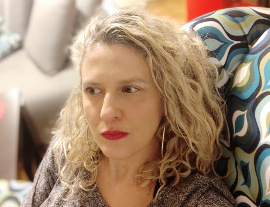
Pracuje w Katedrze Filozofii Praktycznej w Instytucie Filozofii UMK w Toruniu. Zajmuje się współczesną filozofią środowiskową, filozofią nauki i techniki, studiami nad nauką i technologią i kontrowersjami w nauce. Jest autorką książek: Socjologia wiedzy w Biblii (Nomos 2003), Obraz, który nas zniewala (Universitas 2007), Technonauka w społeczeństwie ryzyka (UMK 2012), a także Epoka człowieka. Retoryka i marazm antropocenu (PWN 2018). Więcej
A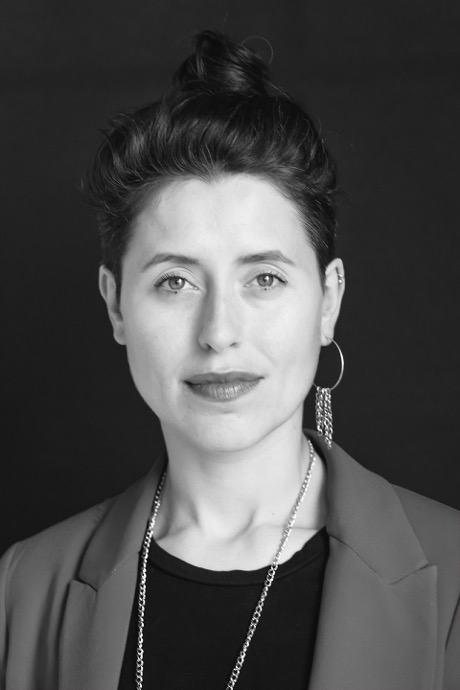 ntropolożka, trenerka antydyskryminacyjna i aktywistka; współzałożycielka new visions, kolektywu edukacyjnego działającego na rzecz bardziej zróżnicowanego i sprawiedliwego sektora artystyczno-kulturalnego, ucząc się od ruchów feministycznych, antyrasistowskich i dekolonialnych walczących o sprawiedliwy dostęp, redystrybucję i reprezentację polityczną. W centrum jej zainteresowań leżą podejścia transdyscyplinarne i intersekcjonalne. Absolwentka kulturoznawstwa (UAM) i fotografii i multimediów (UAP). Stypendystka Echoing Green dla innowatorek i innowatorów społecznych.
ntropolożka, trenerka antydyskryminacyjna i aktywistka; współzałożycielka new visions, kolektywu edukacyjnego działającego na rzecz bardziej zróżnicowanego i sprawiedliwego sektora artystyczno-kulturalnego, ucząc się od ruchów feministycznych, antyrasistowskich i dekolonialnych walczących o sprawiedliwy dostęp, redystrybucję i reprezentację polityczną. W centrum jej zainteresowań leżą podejścia transdyscyplinarne i intersekcjonalne. Absolwentka kulturoznawstwa (UAM) i fotografii i multimediów (UAP). Stypendystka Echoing Green dla innowatorek i innowatorów społecznych.
Geograf, absol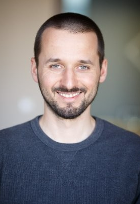 went Uniwersytetu im. Adama Mickiewicza w Poznaniu (doktor nauk o Ziemi, 2017). Post-doc na Uniwersytecie Islandzkim w Reykjaviku. Jego zainteresowania badawcze dotyczą zależności między urbanistyką, transportem, stylami życia, dobrostanem i emisjami gazów cieplarnianych. Zajmuje się również stosowaniem systemów informacji geograficznej (GIS) i narzędzi internetowych do wspierania partycypacji społecznej i podejmowania decyzji w gospodarce przestrzennej. Doświadczenia te wykorzystuje we współpracy z samorządami.
went Uniwersytetu im. Adama Mickiewicza w Poznaniu (doktor nauk o Ziemi, 2017). Post-doc na Uniwersytecie Islandzkim w Reykjaviku. Jego zainteresowania badawcze dotyczą zależności między urbanistyką, transportem, stylami życia, dobrostanem i emisjami gazów cieplarnianych. Zajmuje się również stosowaniem systemów informacji geograficznej (GIS) i narzędzi internetowych do wspierania partycypacji społecznej i podejmowania decyzji w gospodarce przestrzennej. Doświadczenia te wykorzystuje we współpracy z samorządami.
Więcej – https://www.researchgate.net/profile/Michal-Czepkiewicz
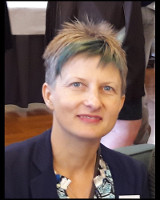
Filozofka i ekonomistka. Absolwentka Uniwersytetu Ekonomicznego we Wrocławiu i Uniwersytetu Wrocławskiego. Współpracuje z licznymi badaczkami i badaczami w Polsce i za granicą, między innymi w ramach: European Pragmatism Association, „Women in Pragmatism” Network oraz „Sieci badawczo-aktywistycznej dewzrostu/postwzrostu w Polsce”. Obecnie zajmuje się zagadnieniami sprawiedliwości dystrybucyjnej, ekofeminizmem oraz etyką globalną.
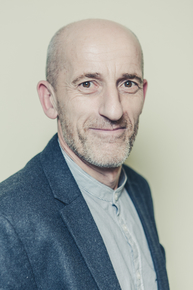
Zainteresowania naukowe:
– kształtowanie się i rozwój problematyki kulturoznawczej
– dzieje polskiej refleksji o kulturze ze szczególnym uwzględnieniem przełomu XIX i XX wieku oraz okresu międzywojennego
– filozofia kultury i filozofia życia G. Simmla
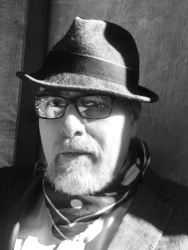
Kierownik Katedry Logiki i Metodologii Nauk. Członek Polskiego towarzystwa Etycznego i kierownik Sekcji Metaetyki PTE. Jego zainteresowania naukowe obejmują zagadnienia logiki filozoficznej, ontologii, etyki i metodologii nauk o kulturze.
Wybrane publikacje: The Ontologic of Actions, W: Contemporary Polish Ontology / edited by Bartłomiej Skowron. – Berlin ; Boston : Walter de Gruyter, 2020. – (Philosophical analysis ; 82). – S. 219-243.
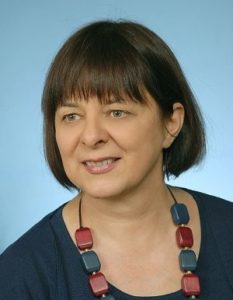
Bożena Ryszawska jest profesorem na Uniwersytecie Ekonomicznym we Wrocławiu Jej prace naukowe skupiają się wokół problemów zielonej gospodarki, zrównoważonego rozwoju, zmian klimatu i transformacji energetycznej oraz zielonych finansów. Stworzyła Green Team odpowiedzialny za zieloną transformację Uniwersytetu Ekonomicznego we Wrocławiu. Bożena Ryszawska jest certyfikowanym liderem Climate Reality Project i członkiem networku klimatycznego w Polsce. Jest w zespole doradczym Prezydenta Wrocławia ds. jakości powietrza i efektywności energetycznej. Jest członkiem Europejskiego Stowarzyszenia Ekonomistów Środowiska i Zasobów Naturalnych oraz Stowarzyszenia Zrównoważonych Finansów i Rachunkowości. Obecnie kieruje projektem w programie UE „Horyzont 2020”, Scaling up Co-creation: Avenues and Limits for Integrating Society in Science and Innovation.
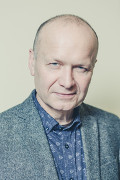
Pracuje w Instytucie Kulturoznawstwa Uniwersytetu Wrocławskiego. Autor publikacji z zakresu uwarunkowań aktywizacji lokalnej, teorii i interpretacji kultury, kulturowych uwarunkowań ochrony środowiska naturalnego. Obecnie zajmuje się problematyką reprodukcji i przekształcania zasobów publicznych, wspólnotowych i prywatnych oraz scenariuszami zmian gospodarki w perspektywie katastrofie klimatycznej. Założyciel Stowarzyszenia Nowa Idea zrzeszonego w European Environmental Bureau, członek Ashoka, Innovators for the Public. Inicjator kampanii na rzecz aktywizacji lokalnej i ograniczania konsumpcji.
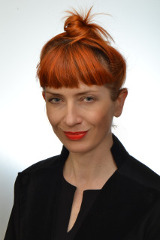
Doktor Filozofii, (Instytut Filozofii Uwr), mgr Ochrony środowiska (Wydział Nauk Biologicznych UWr, Wydział Nauk Geograficznych i Geologicznych UAM), aktualnie studentka Filologii Germańskiej UWr. Zajmuje się etyką środowiskową, odpowiedzialnością w kontekście kryzysu, współczesną kulturą Niemiec. Współpracuje z organizacjami pozarządowymi, m.in. EKO-UNIA, Pracownią na Rzecz Wszystkich Istot, Dolnośląskim Alarmem Smogowym.
Doktorant Wydziału Architektury Politechniki Wrocławskiej. W swojej pracy badawczej skupia się na problemie zaopatrywania współczesnych jednostek osadniczych w podstawowe zasoby – wodę, energię, żywność – z perspektywy koncepcji dewzrostu. Jest jednym z inicjatorów powstającej właśnie sieci badawczo-aktywistycznej postwzrostu/dewzrostu w Polsce.
Więcej – https://wroc.academia.edu/RobertSkrzypczyński”
Geograf, planista regionalny, nauczyciel akademicki, dyrektor Instytutu Rozwoju Terytorialnego – Jednostki Organizacyjnej Samorządu Województwa Dolnośląskiego, adiunkt w Katedrze Urbanistyki i Procesów Osadniczych na Wydziale Architektury Politechniki Wrocławskiej. Autor publikacji naukowych i popularnonaukowych z zakresu polityki rozwoju regionalnego, planowania przestrzennego, rozwoju struktur osadniczych i jakości powietrza. Szerokie zainteresowania badawcze i planistyczne obejmują kwestie rozwoju miejskich obszarów funkcjonalnych, procesu suburbanizacji a także relacji transgranicznych, szczególnie w kontekście powiązań polsko-niemieckich. Autor i współautor koncepcji, strategii oraz planów rozwojowych. Koordynator prac nad Wspólną Koncepcją Przyszłości dla Polsko-Niemieckiego Obszaru Powiązań.
Organising
Institute of Cultural Studies
University of Wrocław
http://kulturoznawstwo.uni.wroc.pl/
Email: idea@uni.wroc.pl
